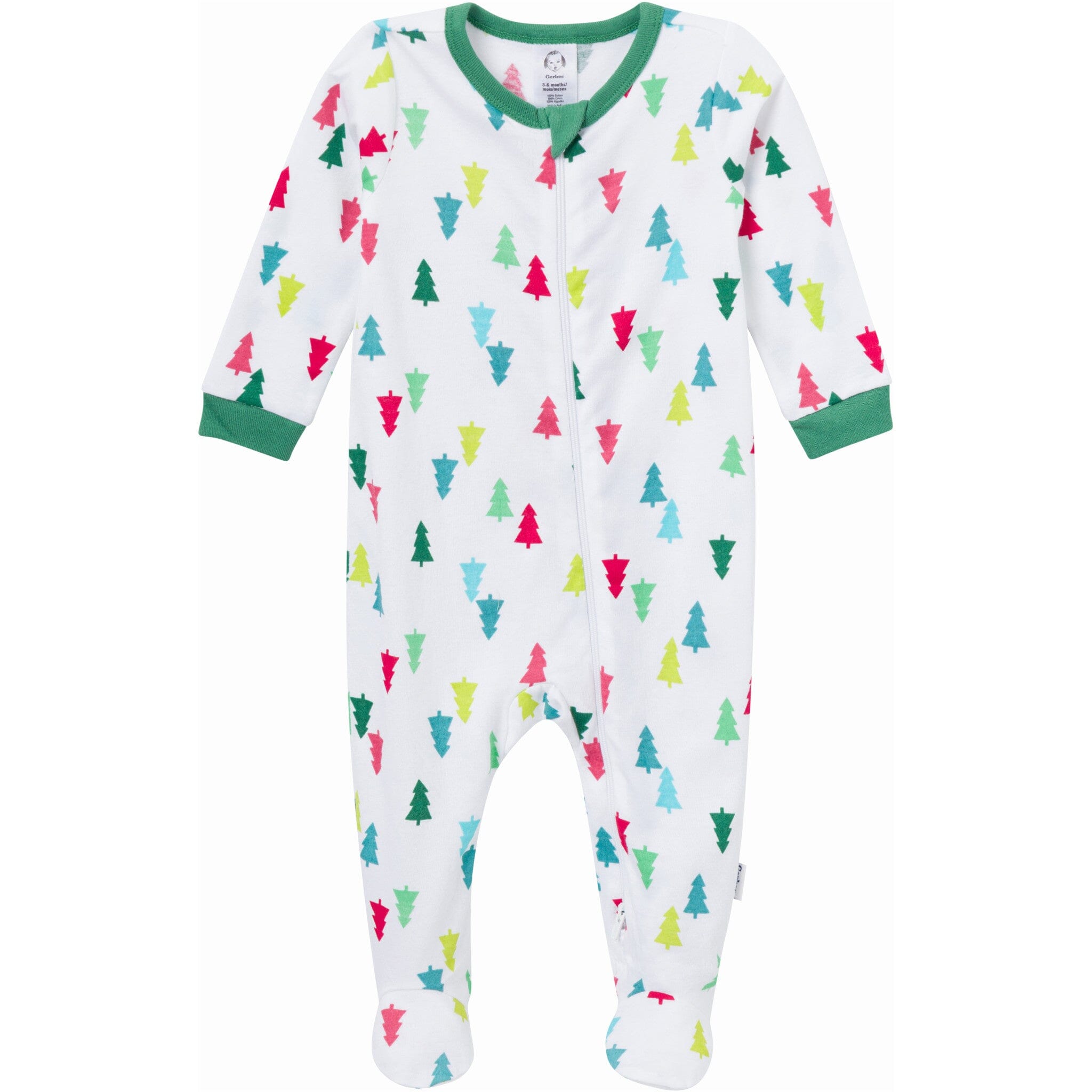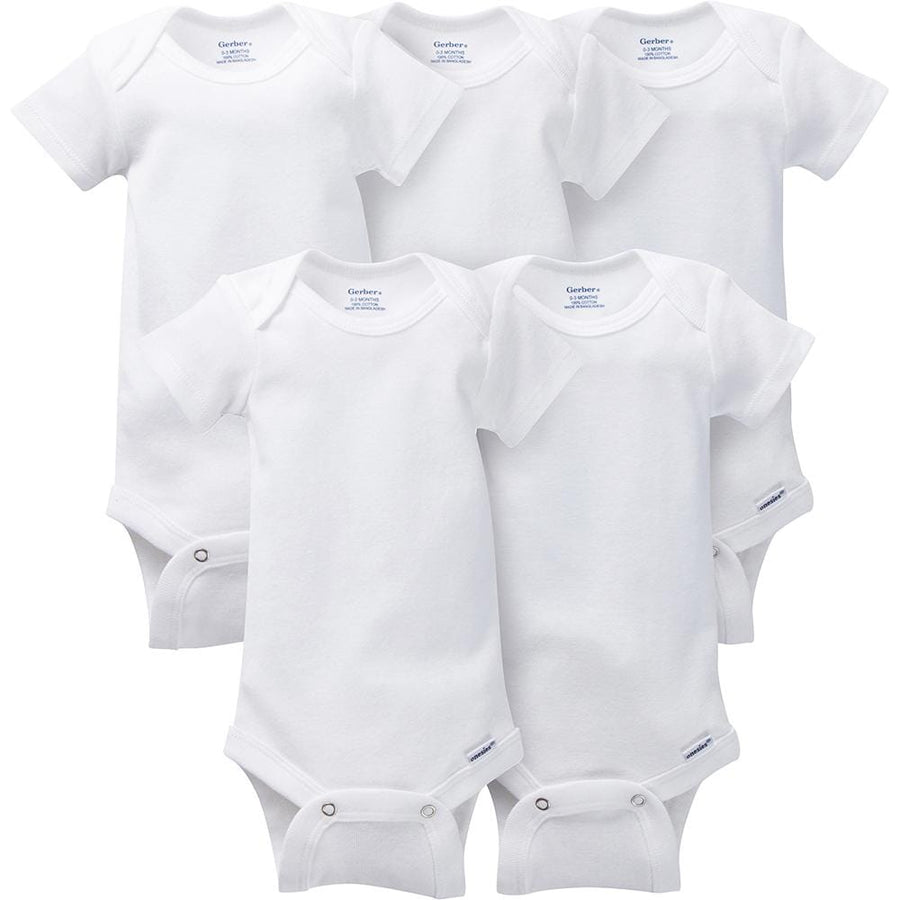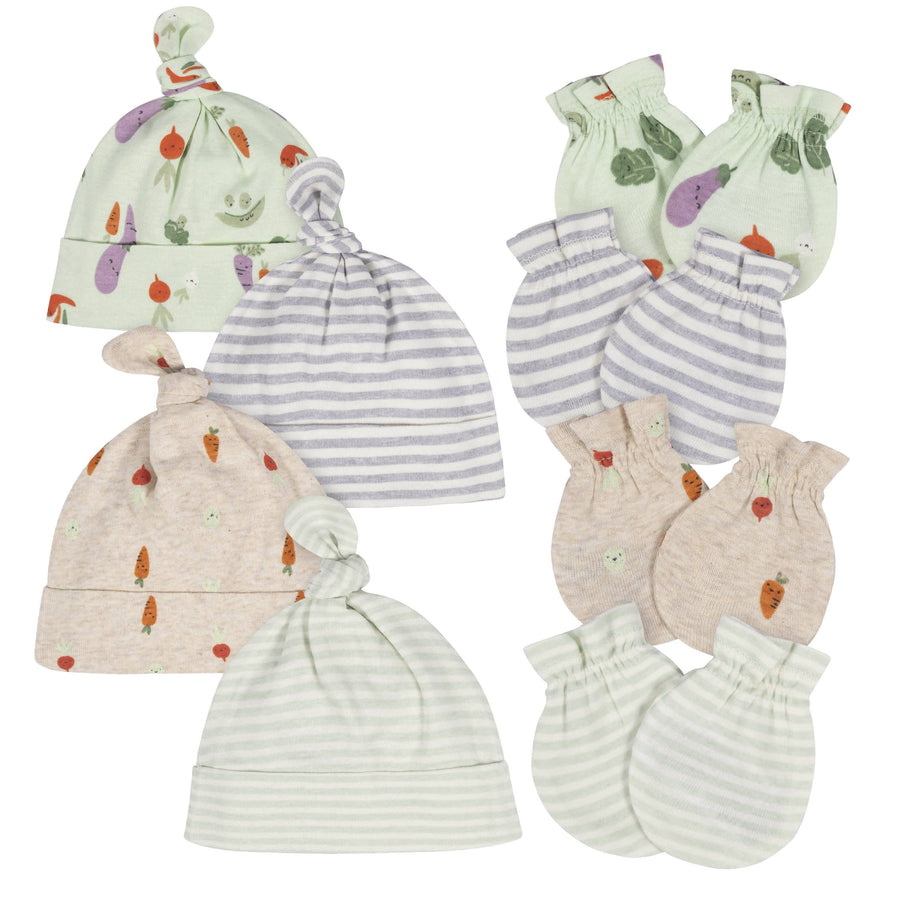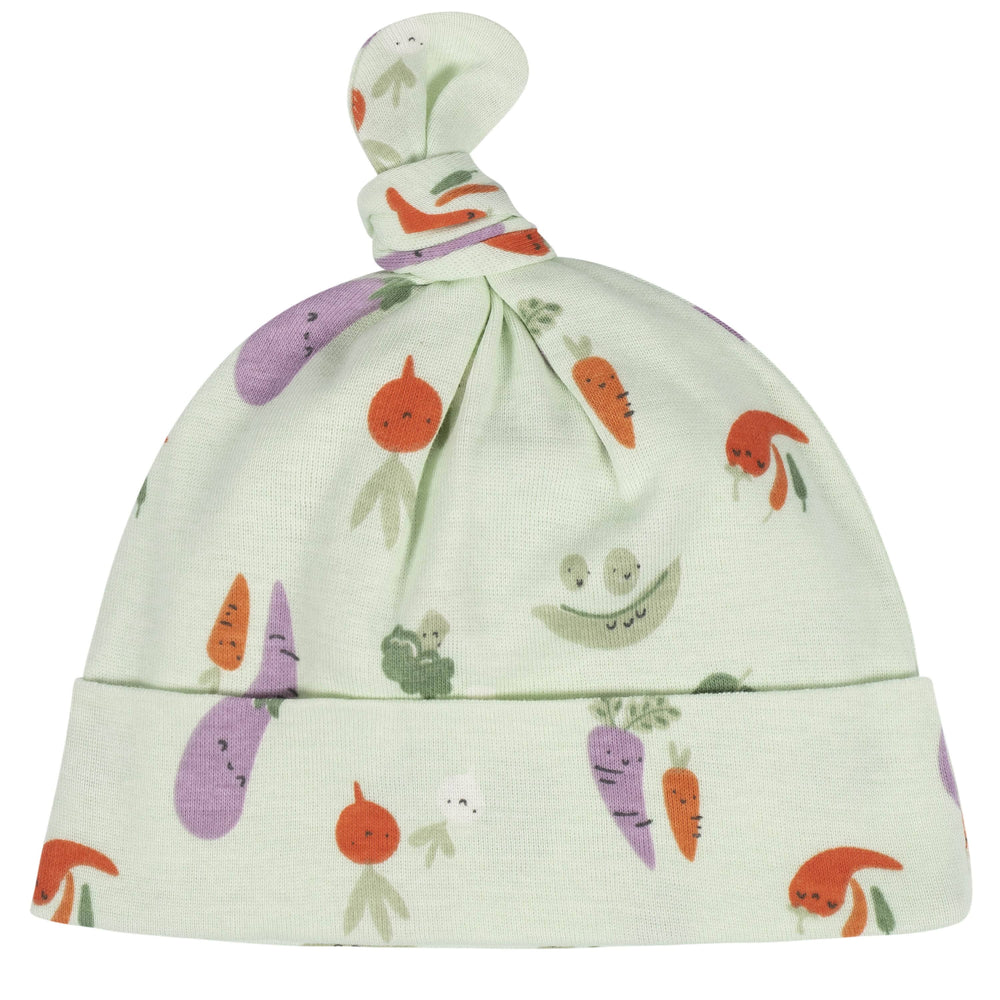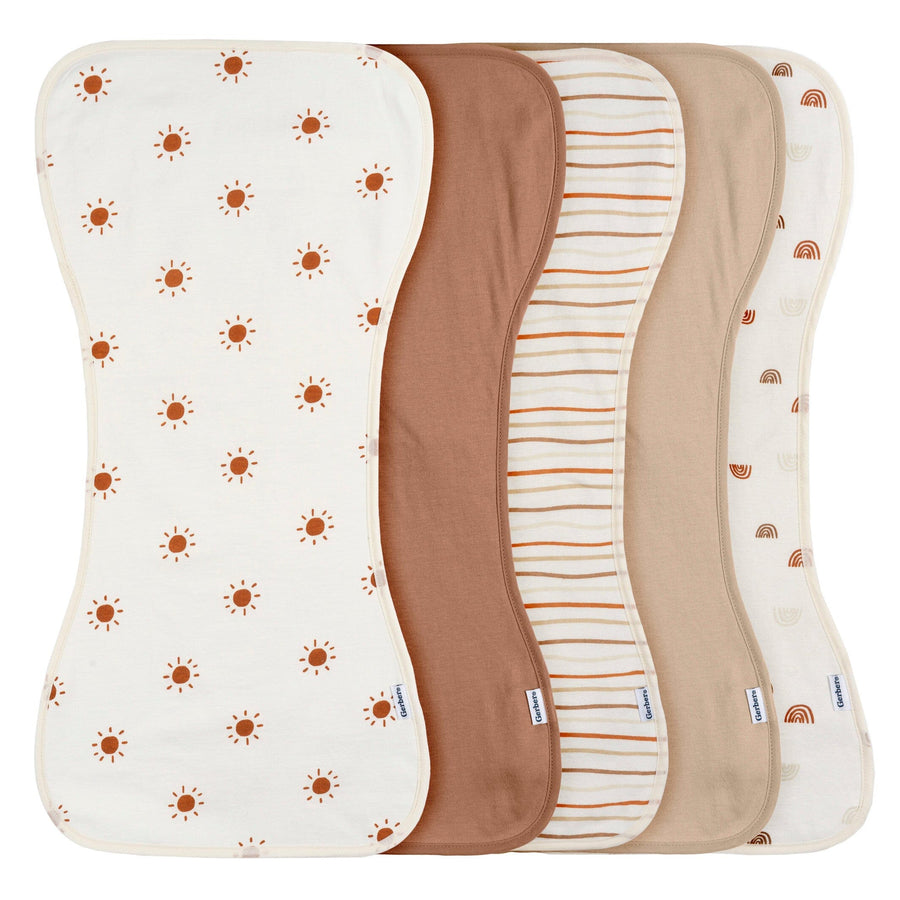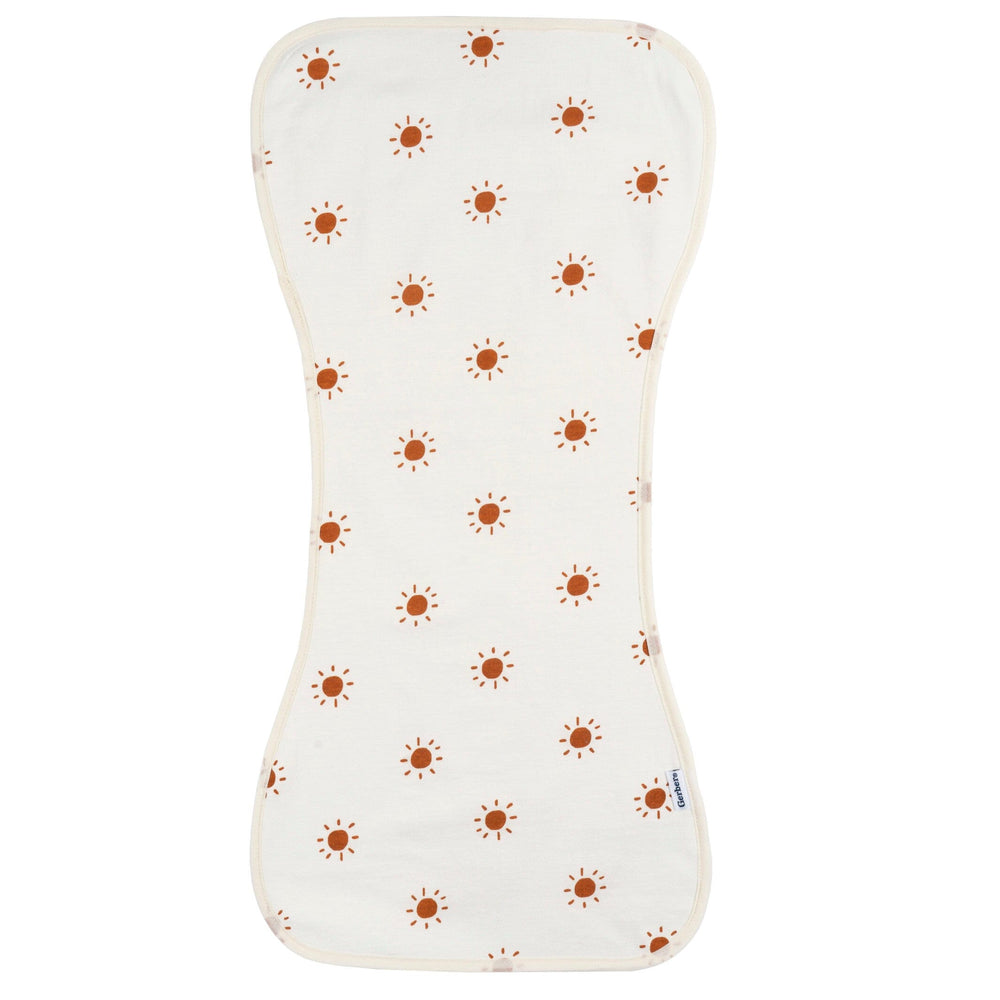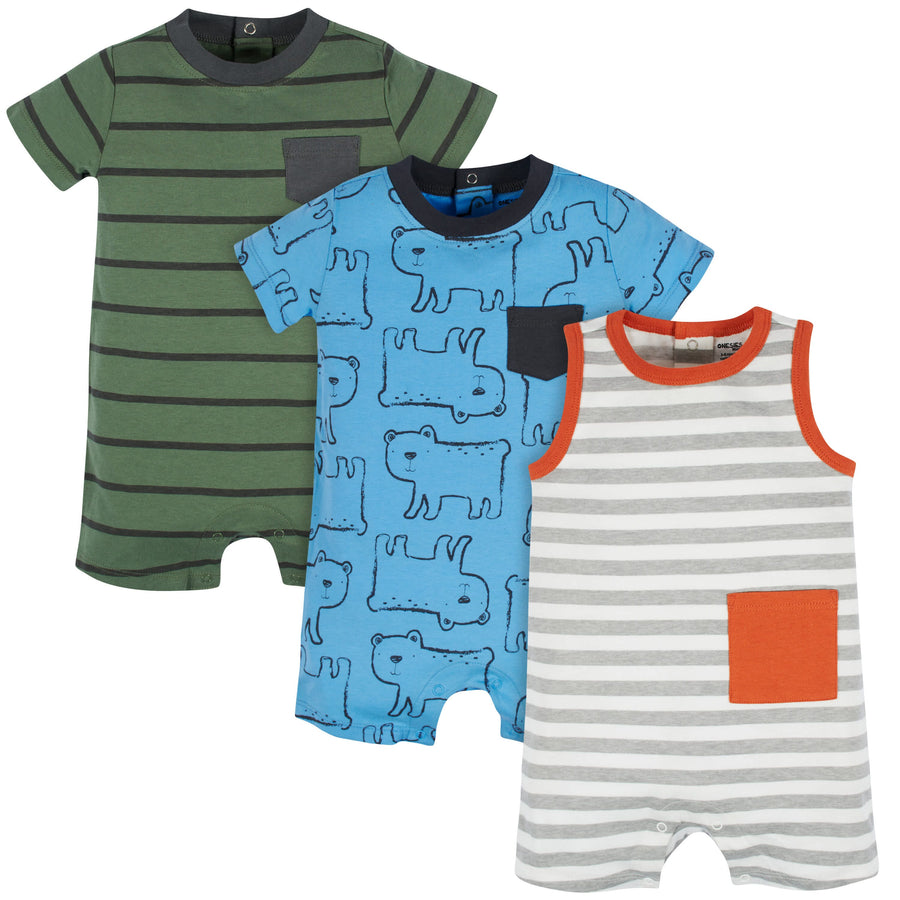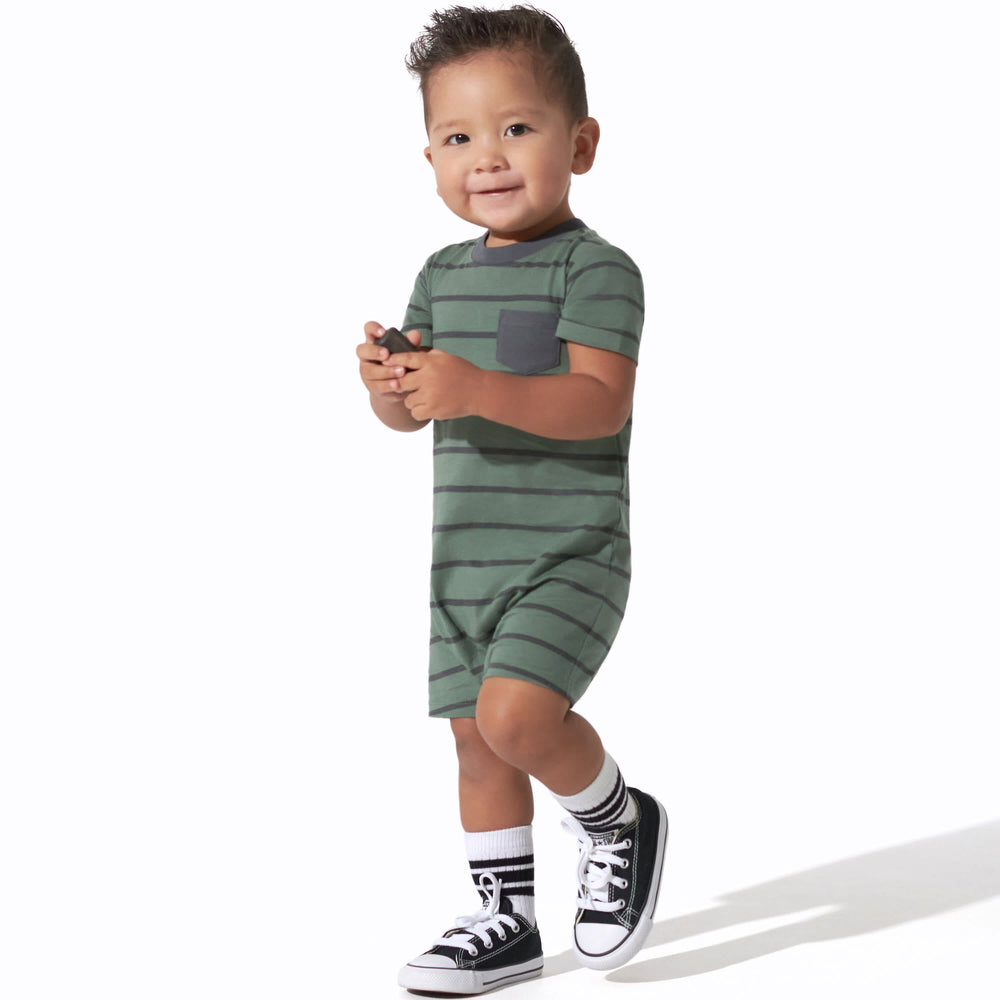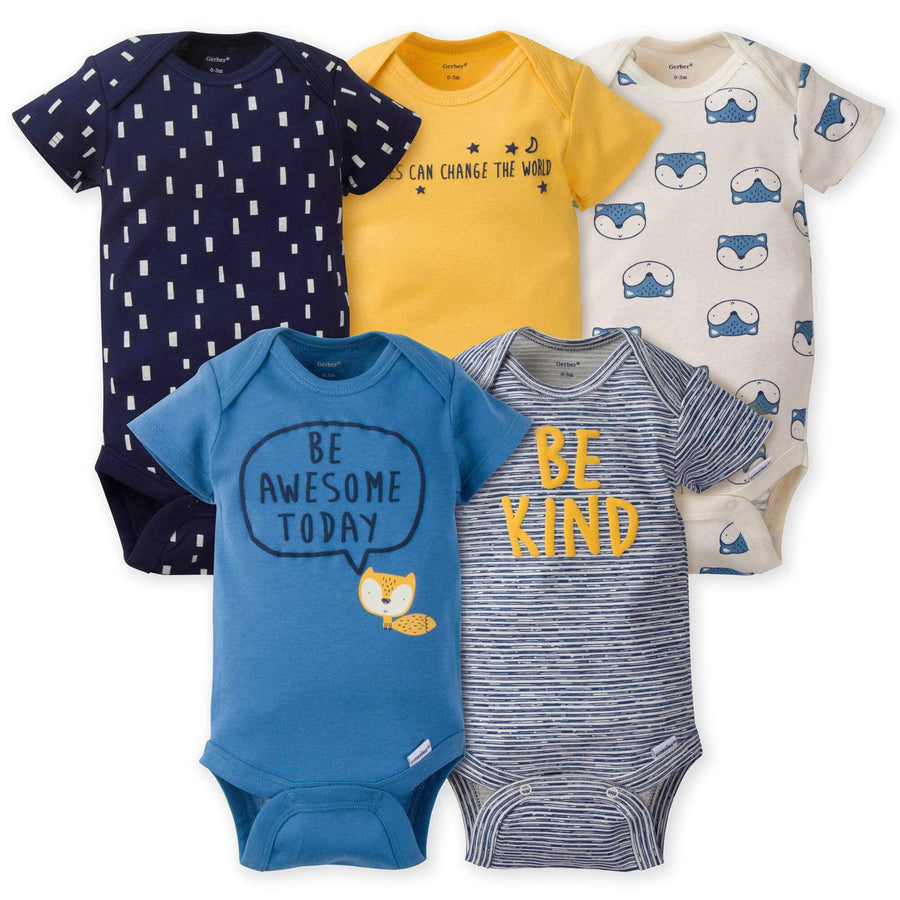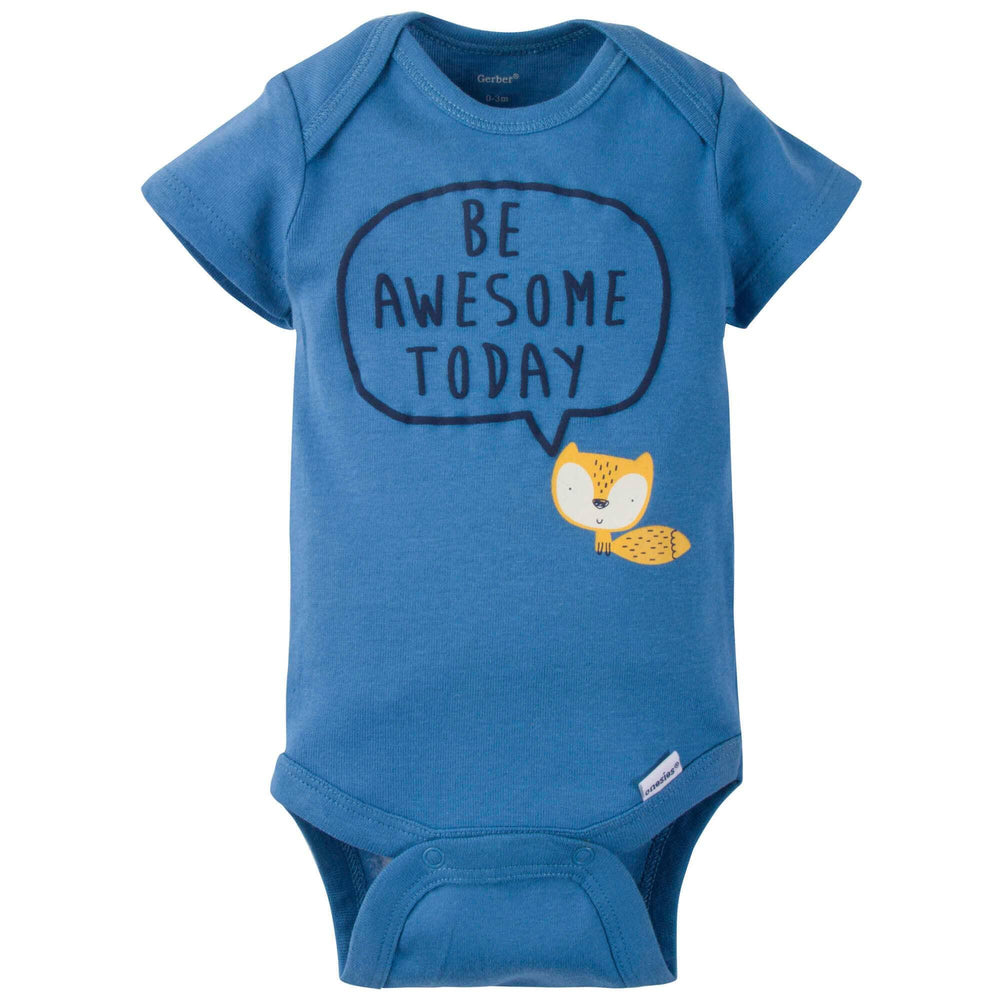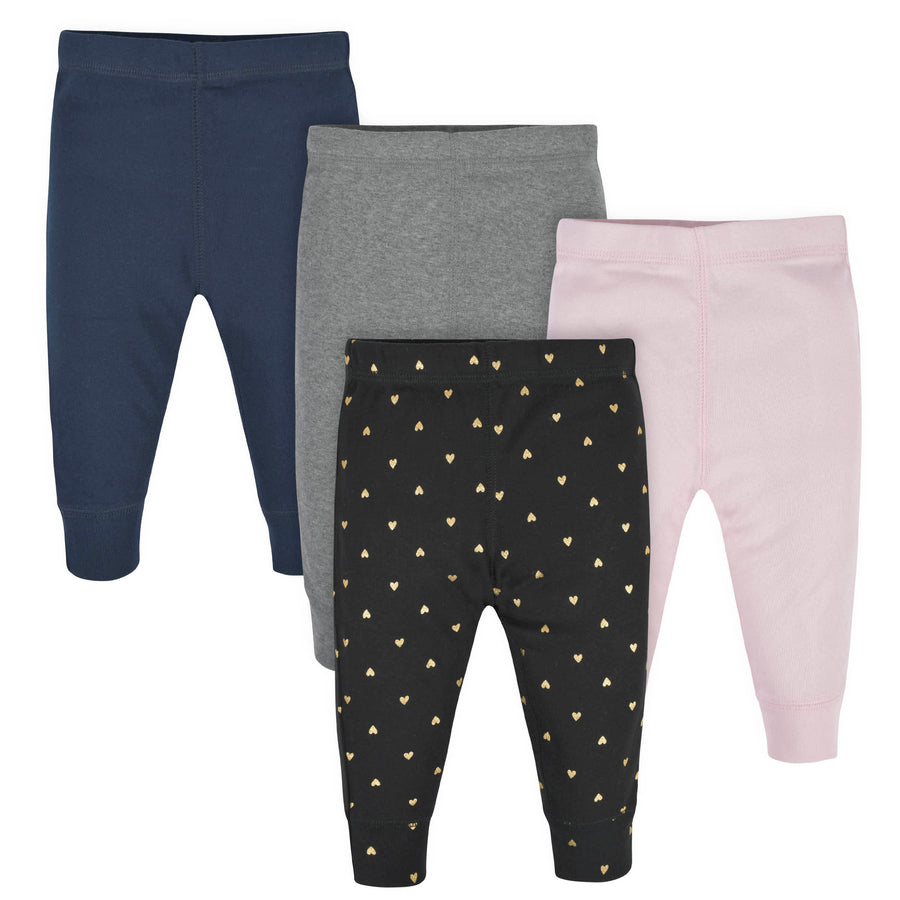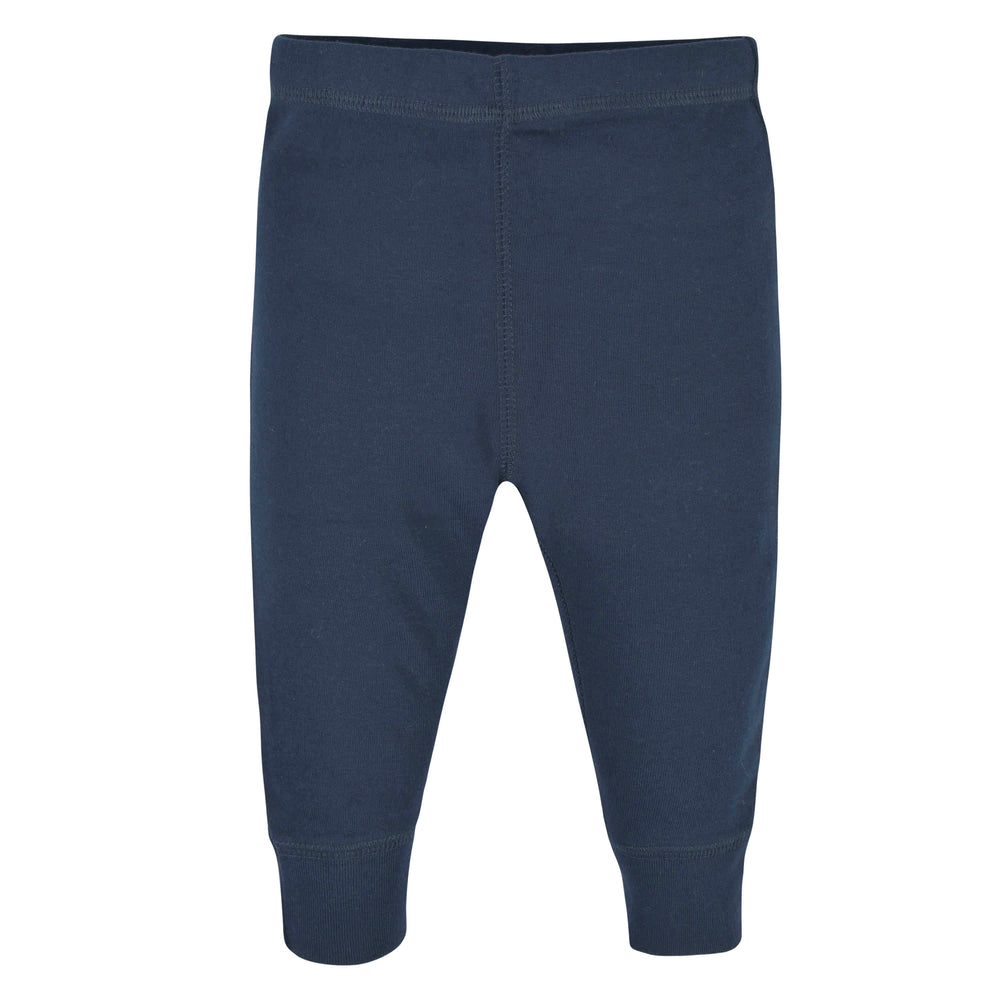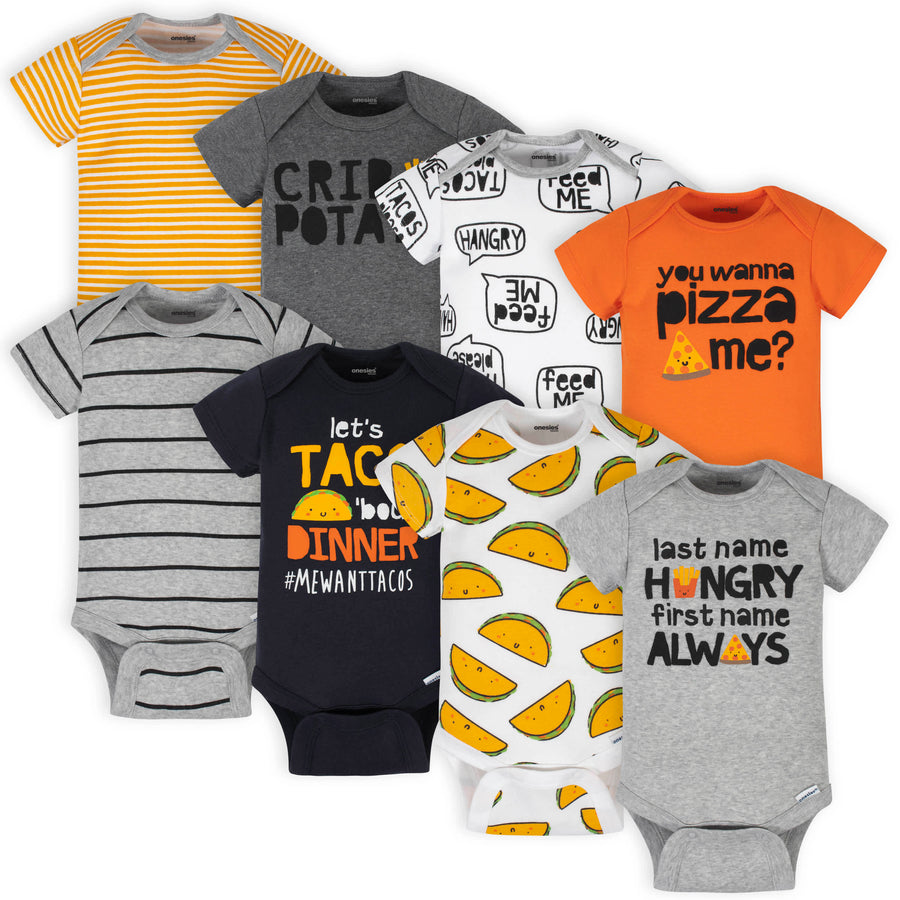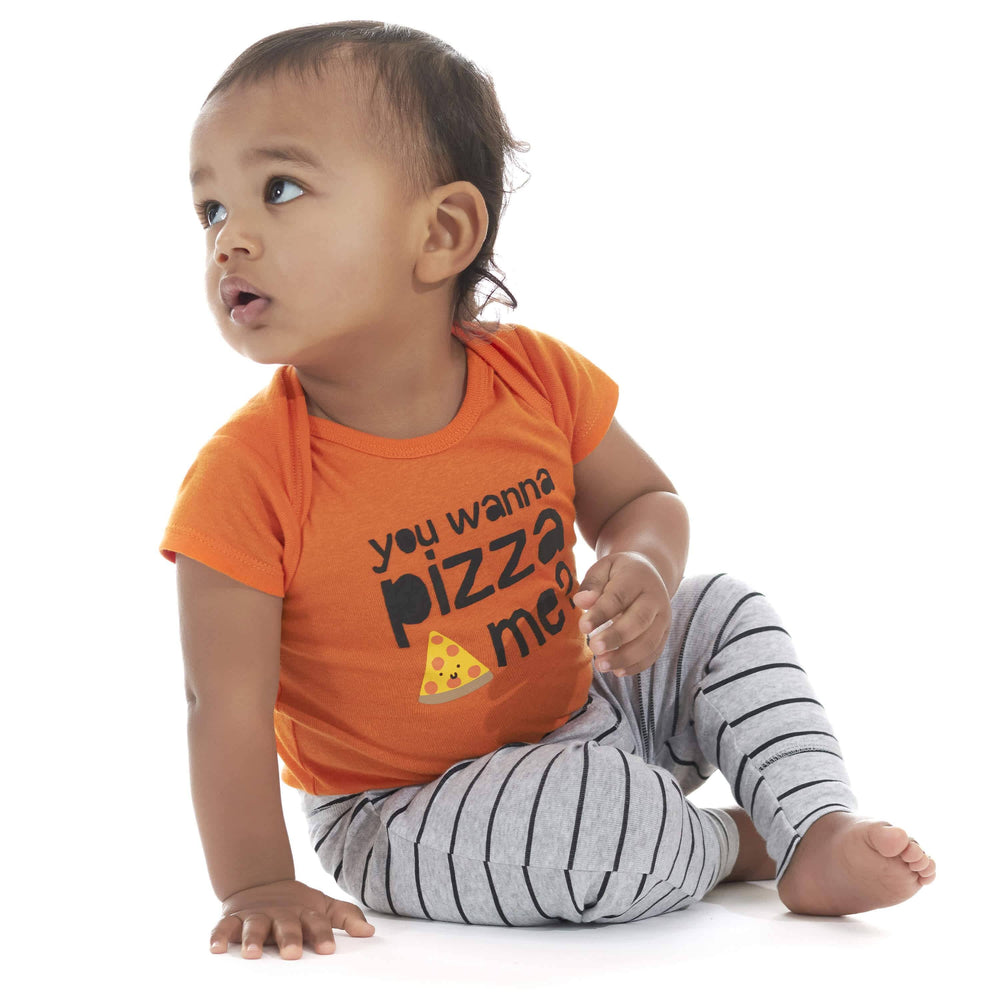Are You Overdressing Your Baby This Winter?

As a new parent, learning your baby can’t regulate their own temperature can be down-right scary. And in the winter months, it can be tempting to overdress them. Seeing as they can’t talk… How do you dress them just right? How do you know if they’re too hot?
A good rule to follow (for both indoors and out) is to layer them in the same amount of clothing you are comfortable in, plus one more under layer.
How should I dress my baby for outdoor winter activities?
First layer: long sleeve bodysuit, bottoms (boy or girl) tops (boy or girl), socks
Second layer: long sleeve shirt, baby boy sleep 'n play, or baby girl sleep 'n play
Third layer: jacket or coat, cap, mittens, or shoes
What types of fabrics are best for baby winter clothes?
Breathable fabrics like cotton can be layered over easily and won’t trap too much heat. You can also keep your little one warm by wrapping them up in a snuggly blanket over top their clothing.

NOTE: If the weather is below freezing or with high wind chill, your newborn should only be outside for brief trips (to/from the car, to the mailbox, etc.). Save the snow angels for when they’re older. 😉
Remember, you know your baby best. If they seem uncomfortable, they probably are.
Parents are often able to tell if a baby is too hot or too cold by the "ear check." Gently touch your child's ear to feel if it feels hotter or colder than normal.

How can I know if my baby is overheating? Look for signs of overheating:
- Head, neck, or back are damp from sweat
- Skin feels hot and looks flushed/red
- Red ears
- Fussy behavior
If your baby has any of these signs, it’s probably time to remove some layers and cool your little one down. Please remember it’s always best to consult with your child’s pediatrician if you have any concerns about your baby’s well-being.
Ready to find some adorable layering pieces? Start with our favorite Onesies® Brand bodysuits and be sure to tag your bundled babies with us on social!
Disclaimer: The information posted above is meant as general information, NOT medical advice for any specific person or condition. Any medical concerns you have about you or your children should be discussed with your health provider.


